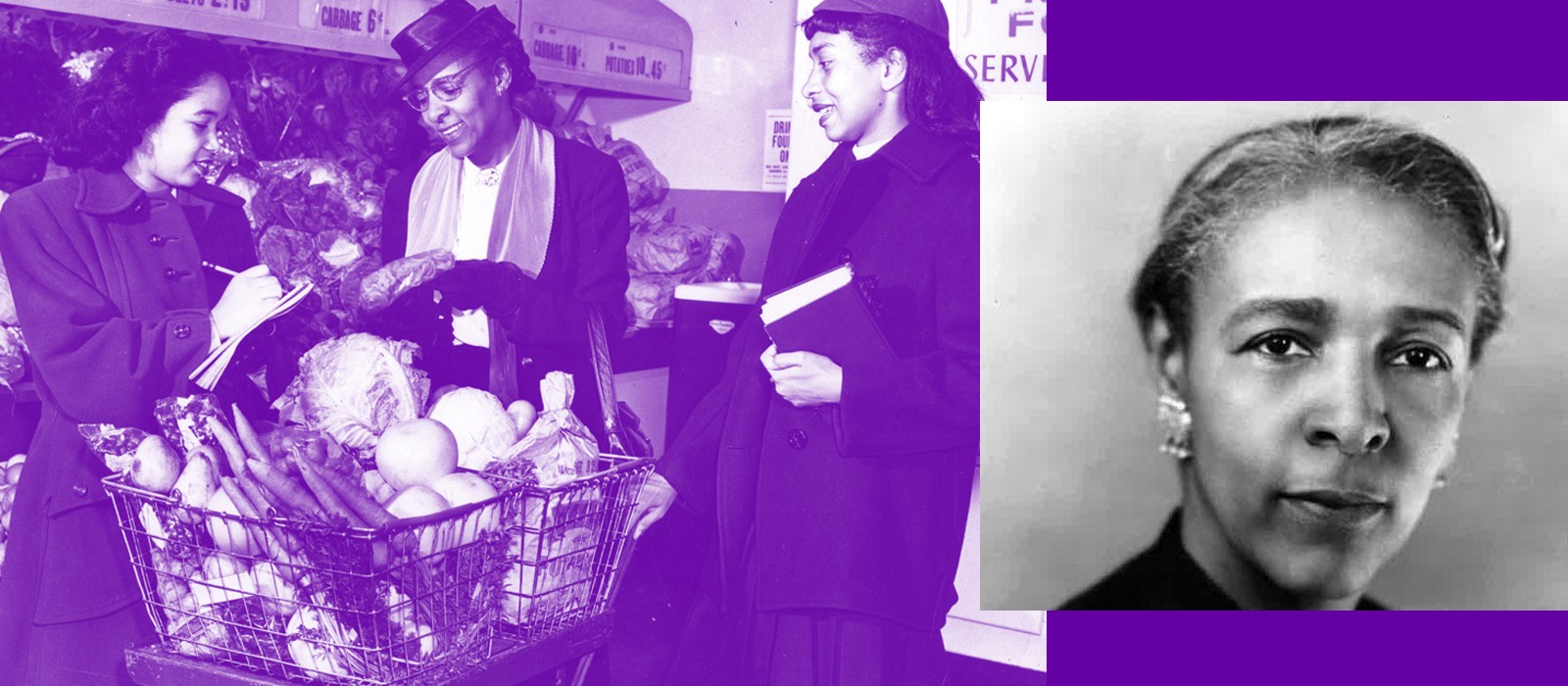Trailblazers: Flemmie Pansy Kittrell

Over a career of more than 40 years — which included leading the home economics department at Howard University, making vital contributions to the Head Start program and traveling to more than 15 countries — Flemmie Kittrell, M.S. ’30, Ph.D. ’36 demonstrated that the study of home economics was never limited to the home. Instead, inspired by her education at Hampton Institute (now Hampton University) and Cornell University, Kittrell saw the rigorous study of fields like child development and nutrition – and the applications of those findings, as an opportunity to improve people’s lives and transform societies.

Left: Flemmie Kittrell (center) in a grocery store in Washington, DC with Rita Barnes and Jean Terry.
Kittrell was born in 1904 in Henderson, North Carolina, and received her bachelor’s degree in home economics from Hampton in 1928. Her professors encouraged her to go on to Cornell to continue her education, and in 1936, she became the first Black woman in the country to receive a Ph.D. in nutrition – and the first in any subject at Cornell. She then returned to Hampton to teach nutrition, eventually rising to the dean of women and head of the department of home economics. In 1944, she moved to Howard University, where she worked for the next three decades.
In 1946, the State Department sent Kittrell to Liberia to study nutrition and build education networks. Based on her observations and research, she coined the term “hidden hunger” to describe people who have enough food to feel full but whose limited diets lead to vitamin deficiencies. Three years later, she received Fulbright funding to visit India, where she helped establish a home economics program at a university.
...Kittrell found Home Economics to be a meaningful path into arenas of national policy making and global affairs.
Over the next decades, Kittrell went on to visit Hawaii, Japan, Sweden and countries throughout West and Central Africa, working on behalf of State Department and government agencies, NGOs, mission groups and the United Nations. She also welcomed international students to Howard and encouraged graduates to seek careers abroad. The editors of the 1956 yearbook declared Howard “A Center of International Education” and dedicated the volume to Kittrell, citing her service to the university as well as to humanity and the cause of “international peace and freedom.”
In addition to her extensive travels abroad, Kittrell was involved with several studies in the U.S. on Black children’s health, the formation of Head Start, and training for Urban Extension. According to biographer Allison Horrocks, “By studying family dynamics and issues such as children’s nutrition, Kittrell found Home Economics to be a meaningful path into arenas of national policy making and global affairs.”
Kittrell received numerous awards and recognitions, including the Hampton Alumni Award, the National Council of Negro Women’s Scroll of Honor and an honorary degree from the University of North Carolina in Greensboro. She retired from teaching in 1972 but kept working as a visiting fellow at Cornell and then Hampton. She died in 1980.
To learn more about Flemmie Kittrell, watch Allison Horrock’s 2014 presentation, To Encircle the World: Flemmie Kittrell and the International Politics of Home Economics, which traces Kittrell's rise to prominence as an educator and nutrition expert.